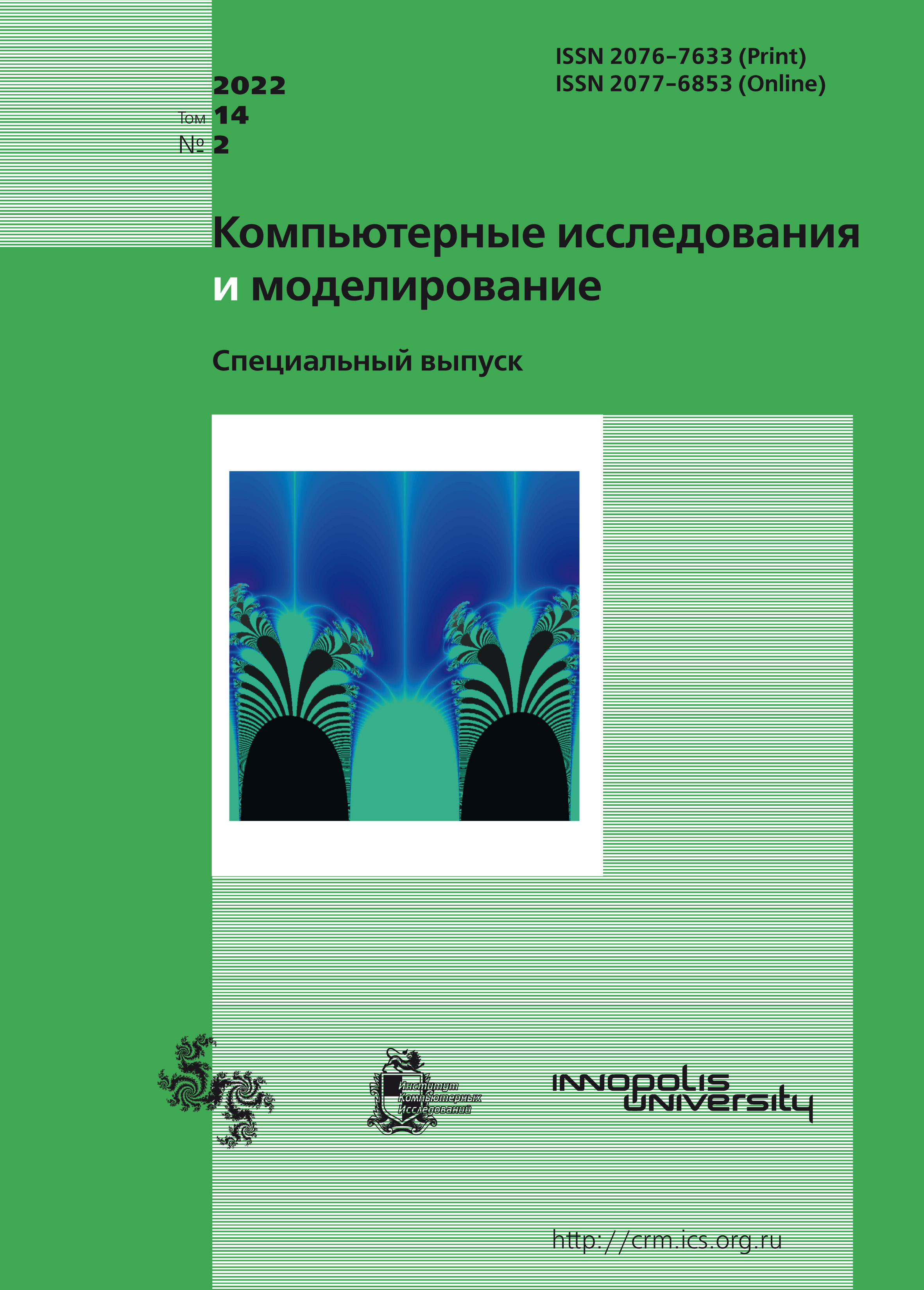All issues
- 2025 Vol. 17
- 2024 Vol. 16
- 2023 Vol. 15
- 2022 Vol. 14
- 2021 Vol. 13
- 2020 Vol. 12
- 2019 Vol. 11
- 2018 Vol. 10
- 2017 Vol. 9
- 2016 Vol. 8
- 2015 Vol. 7
- 2014 Vol. 6
- 2013 Vol. 5
- 2012 Vol. 4
- 2011 Vol. 3
- 2010 Vol. 2
- 2009 Vol. 1
Adaptive first-order methods for relatively strongly convex optimization problems
 pdf (249K)
pdf (249K)
The article is devoted to first-order adaptive methods for optimization problems with relatively strongly convex functionals. The concept of relatively strong convexity significantly extends the classical concept of convexity by replacing the Euclidean norm in the definition by the distance in a more general sense (more precisely, by Bregman’s divergence). An important feature of the considered classes of problems is the reduced requirements concerting the level of smoothness of objective functionals. More precisely, we consider relatively smooth and relatively Lipschitz-continuous objective functionals, which allows us to apply the proposed techniques for solving many applied problems, such as the intersection of the ellipsoids problem (IEP), the Support Vector Machine (SVM) for a binary classification problem, etc. If the objective functional is convex, the condition of relatively strong convexity can be satisfied using the problem regularization. In this work, we propose adaptive gradient-type methods for optimization problems with relatively strongly convex and relatively Lipschitzcontinuous functionals for the first time. Further, we propose universal methods for relatively strongly convex optimization problems. This technique is based on introducing an artificial inaccuracy into the optimization model, so the proposed methods can be applied both to the case of relatively smooth and relatively Lipschitz-continuous functionals. Additionally, we demonstrate the optimality of the proposed universal gradient-type methods up to the multiplication by a constant for both classes of relatively strongly convex problems. Also, we show how to apply the technique of restarts of the mirror descent algorithm to solve relatively Lipschitz-continuous optimization problems. Moreover, we prove the optimal estimate of the rate of convergence of such a technique. Also, we present the results of numerical experiments to compare the performance of the proposed methods.
Copyright © 2022 Savchuk O.S., Titov A.A., Stonyakin F.S., Alkousa M.S.
Indexed in Scopus
Full-text version of the journal is also available on the web site of the scientific electronic library eLIBRARY.RU
The journal is included in the Russian Science Citation Index
The journal is included in the RSCI
International Interdisciplinary Conference "Mathematics. Computing. Education"






